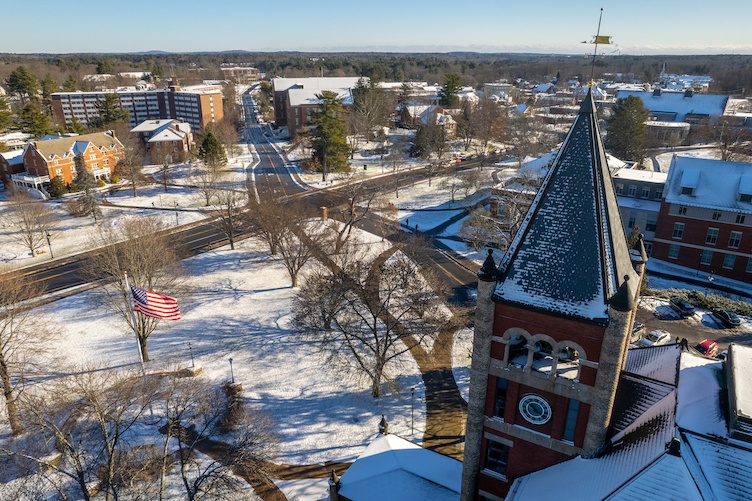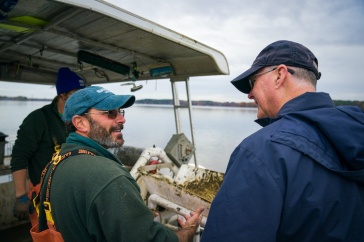
The University of New Hampshire has been chosen as one of 40 U.S. colleges and universities to receive the 2024 Carnegie Community Engagement Classification in recognition of its “institutional commitment to community engagement.”
The elective designation was announced by the American Council on Education (ACE) and the Carnegie Foundation for the Advancement of Teaching and is awarded following a process of self-study by each institution, which is then assessed by a national review committee.
“This recognition highlights our commitment to fostering meaningful partnerships with our local and global communities, and actively engaging in service learning, engaged scholarship and engaged research activities,” says Kenneth La Valley, vice provost of university outreach and engagement and director of UNH Extension.
“Embrace New Hampshire” is one of the four strategic pillars UNH President James W. Dean, Jr. announced for the university community in 2019, with a focus on strengthening UNH’s standing as a trusted and valuable partner to the Granite State, and the community engagement classification represents tangible recognition in that area.
That recognition stems from initiatives such as Seacoast Reads, which places UNH undergraduate student volunteers into local schools, libraries and other after-school programs to help elementary and middle school students improve their reading and writing skills through one-on-one support.
Additionally, the UNH-4U program offers an innovative two-year inclusive higher education program to young adults with intellectual disabilities, creating, expanding and enhancing inclusive higher education experiences in New Hampshire to support positive outcomes. Students in the program can earn a micro-credential/digital badge in Campus and Community Engagement. Earners of the badge demonstrate the ability to identify and participate in personally meaningful and community-based activities.
The university has done significant work to combat food insecurity, as well. It is estimated that 19% of students at UNH face food insecurity, and over the past two years, members of the UNH community – along with Gather, a food pantry and distribution network – have collaborated to repurpose an underused kitchen on campus to prepare meals with food items from UNH Dining Services that would otherwise be lost to food waste.
Food Repurposing Project Volunteers from the UNH College of Life Sciences and Agriculture (COLSA), Dining Services and Gather meet each week to prepare ready-to-eat meals from unused dining hall food and donated items and distribute it to local food pantries. Since fall of 2022, the program has prepared and distributed approximately 6,300 meals to students and families in need.
“UNH provides its students with numerous opportunities to influence and motivate those around them,” La Valley says.
Other initiatives that led to UNH receiving the Carnegie recognition include the Convergent Artic Research Perspective and Education (CARPE) work, a five-year initiative centered around Artic-related research but more broadly designed to promote institutional change in how UNH teaches graduate students to conduct interdisciplinary research that engages communities that are local to our research sites.
There is a particular emphasis on learning ethical, responsible and reciprocal engagement with indigenous communities. The CARPE program values community partners, including those who advise UNH on how to co-produce research with partners from communities historically and presently marginalized.
CARPE builds on partnerships developed by the UNH anthropology department to bring Indigenous community members to campus as unfunded affiliate faculty as part of a Native American and Indigenous Studies minor. The CARPE program strengthens these relationships by securing campus office and lab space for the two lead Abenaki partners. These partners have been crucial in providing training to UNH students on strategies for building relationships with Indigenous partners as well as unique ways of developing and approaching research questions.
UNH is one of 18 institutions among the 40 classified in 2024 to be receiving the recognition for the first time. There are 368 campuses who are active holders of the distinction, which has been the leading framework for institutional assessment and recognition of community engagement in U.S. higher education for the past 19 years.
-
Compiled By:
Keith Testa | UNH Marketing | keith.testa@unh.edu



















































